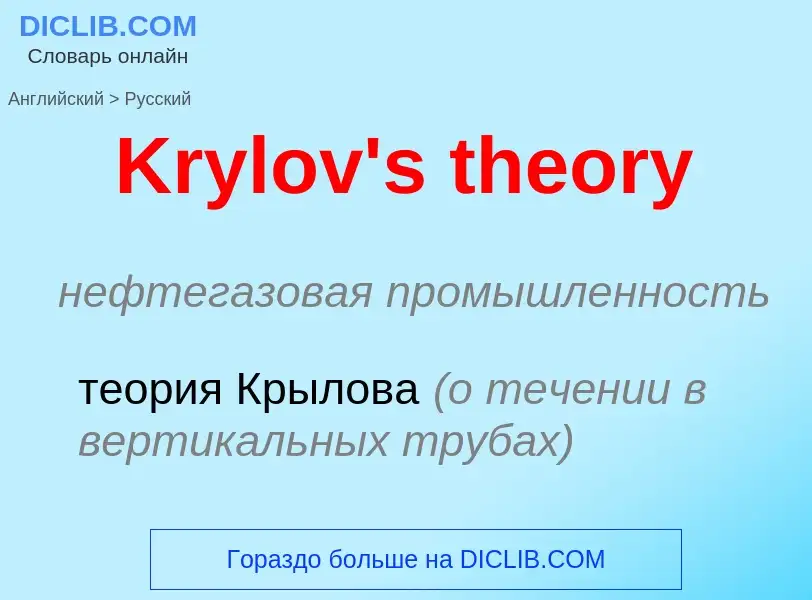Перевод и анализ слов искусственным интеллектом ChatGPT
На этой странице Вы можете получить подробный анализ слова или словосочетания, произведенный с помощью лучшей на сегодняшний день технологии искусственного интеллекта:
- как употребляется слово
- частота употребления
- используется оно чаще в устной или письменной речи
- варианты перевода слова
- примеры употребления (несколько фраз с переводом)
- этимология
Krylov's theory - перевод на русский
нефтегазовая промышленность
теория Крылова (о течении в вертикальных трубах)
математика
теория первого порядка
математика
дедуктивная теория
Определение
.
Википедия
The theory-theory (or 'theory theory') is a scientific theory relating to the human development of understanding about the outside world. This theory asserts that individuals hold a basic or 'naïve' theory of psychology ("folk psychology") to infer the mental states of others, such as their beliefs, desires or emotions. This information is used to understand the intentions behind that person's actions or predict future behavior. The term 'perspective taking' is sometimes used to describe how one makes inferences about another person's inner state using theoretical knowledge about the other's situation.
This approach has become popular with psychologists as it gives a basis from which to explore human social understanding. Beginning in the mid-1980s, several influential developmental psychologists began advocating the theory theory: the view that humans learn through a process of theory revision closely resembling the way scientists propose and revise theories. Children observe the world, and in doing so, gather data about the world's true structure. As more data accumulates, children can revise their naive theories accordingly. Children can also use these theories about the world's causal structure to make predictions, and possibly even test them out. This concept is described as the 'Child Scientist' theory, proposing that a series of personal scientific revolutions are required for the development of theories about the outside world, including the social world.
In recent years, proponents of Bayesian learning have begun describing the theory theory in a precise, mathematical way. The concept of Bayesian learning is rooted in the assumption that children and adults learn through a process of theory revision; that is, they hold prior beliefs about the world but, when receiving conflicting data, may revise these beliefs depending upon their strength.

